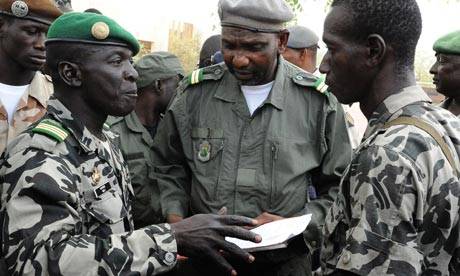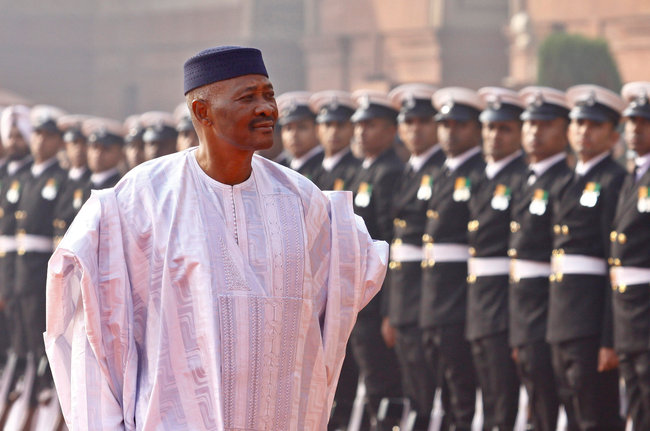Mali Mutiny: Renegade Soldiers Reportedly Depose Amadou Toumani Toure, Seize Power

Mali Mutiny: Renegade Soldiers Reportedly Depose Amadou Toumani Toure, Seize Power

BAMAKO, Mali -- Drunk soldiers looted Mali's presidential palace hours after they declared a coup on Thursday, suspending the constitution and dissolving the institutions of one of the few established democracies in this troubled corner of Africa.
The whereabouts of the country's 63-year-old president Amadou Toumani Toure, who was just one month away from stepping down after a decade in office, could not be confirmed. The United States Embassy issued a statement dispelling rumors that he had sought refuge in their compound.
The scene in this normally serene capital was unsettling to those proud of Mali's history as one of the mature democracies in the region. Soldiers smelling of alcohol ripped flat-screen TVs, computer monitors, printers and photocopiers out of the presidential palace, carting them off in plain sight. Others in pickup trucks zoomed across the broad avenues, holding beer bottles in one hand and firing automatic weapons with the other.
The mutineers said they were overthrowing the government because of its mishandling of an ethnic Tuareg insurgency in the country's north that began in January. Tens of thousands of Malian civilians have been forced to flee. The soldiers sent to fight the separatists have been killed in large numbers, often after being sent to the battlefield with inadequate arms and food supplies, prompting fierce criticism of the government.
The coup began Wednesday, after young troops mutinied at a military camp near the capital. The rioting spread to a garrison thousands of kilometers (miles) away in the strategic northern town of Gao.
Mali Mutiny: Renegade Soldiers Reportedly Depose Amadou Toumani Toure, Seize Power











